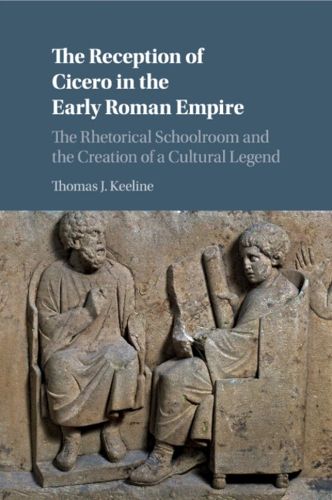Readings Newsletter
Become a Readings Member to make your shopping experience even easier.
Sign in or sign up for free!
You’re not far away from qualifying for FREE standard shipping within Australia
You’ve qualified for FREE standard shipping within Australia
The cart is loading…






Cicero was one of the most important political, intellectual, and literary figures of the late Roman Republic, rising to the consulship as a ‘new man’ and leading a complex and contradictory life. After his murder in 43 BC, he was indeed remembered for his life and his works - but not for all of them. This book explores Cicero’s reception in the early Roman Empire, showing what was remembered and why. It argues that early imperial politics and Cicero’s schoolroom canonization had pervasive effects on his reception, with declamation and the schoolroom mediating and even creating his memory in subsequent generations. The way he was deployed in the schools was foundational to the version of Cicero found in literature and the educated imagination in the early Roman Empire, yielding a man stripped of the complex contradictions of his own lifetime and polarized into a literary and political symbol.
$9.00 standard shipping within Australia
FREE standard shipping within Australia for orders over $100.00
Express & International shipping calculated at checkout
Cicero was one of the most important political, intellectual, and literary figures of the late Roman Republic, rising to the consulship as a ‘new man’ and leading a complex and contradictory life. After his murder in 43 BC, he was indeed remembered for his life and his works - but not for all of them. This book explores Cicero’s reception in the early Roman Empire, showing what was remembered and why. It argues that early imperial politics and Cicero’s schoolroom canonization had pervasive effects on his reception, with declamation and the schoolroom mediating and even creating his memory in subsequent generations. The way he was deployed in the schools was foundational to the version of Cicero found in literature and the educated imagination in the early Roman Empire, yielding a man stripped of the complex contradictions of his own lifetime and polarized into a literary and political symbol.